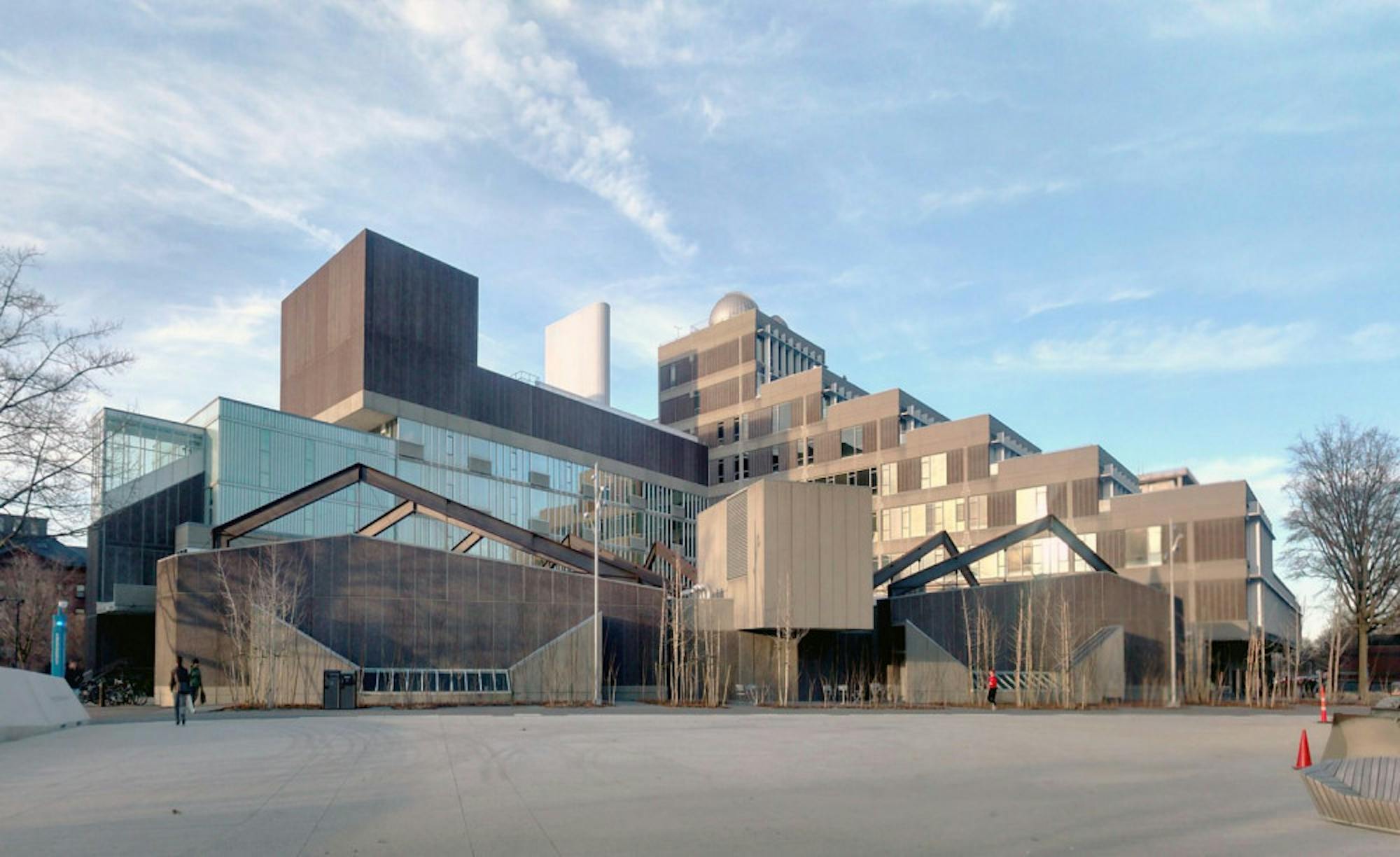Tufts’ Science, Technology and Society program hosted Benjamin Wilson, assistant professor of the history of science at Harvard University, on Dec. 4 as part of its Lunch Seminar Series.
Wilson's lecture, "The Scientific Power Elite in the Age of Nuclear Weapons," focused on the relationship between anti-nuclear scientists and the military-industrial complex during the Cold War.
Wilson began the event by discussing C. Wright Mills’ 1956 book “The Power Elite,” which includes an analysis of the military-industrial complex and network of military, corporate and political interests that have a strong influence on U.S. policy, at the expense of American citizens.
He said that the notion of nuclear stability during the Cold War was shaped not by science or by theories of international relations, but rather by the interests of the military-industrial complex.
Wilson also discussed a case study involving Hans Bethe, a German American physicist who worked on the Manhattan Project during World War II and later became an anti-nuclear voice during the Cold War. He said that unknown to many Americans at the time, Bethe served as a science adviser to the federal government while also working as a private consultant for the Avco Corporation, which sought to deploy anti-ballistic missile systems in suburbs of major U.S. cities.
Wilson said Bethe’s story is representative of the relationship between the scientific elite and the military-industrial complex.
“[The elite] is a closed group that protects itself from outside accountability,” Wilson said.
Wilson later discussed how scientists who were a part of what Mills called the “power elite” influenced nuclear policy in favor of the military-industrial complex, despite publicly opposing it.
“Stability tells us more about the lives and social positions of the people who formulate it than it does about a world with nuclear weapons,” Wilson said.
He expanded on these ideas in a later email to the Daily.
"It suggest[s] that our understanding of the structures that drove the nuclear arms race, and our narratives about scientists in the nuclear age, had been far too simple," Wilson wrote.
He added that scientific elites’ conflicts of interest led to distractions from the greater, underlying issues at play.
"Of course, they did criticize nuclear policy and the arms race. But what they tended not to criticize were the powerful set of social and economic relations that made continuous weapons development possible," Wilson said. "This turned the Cold War nuclear debate, at times, into a kind of political theater."
Wilson also noted after the lecture that conflicts of interest among scientists are as widespread as they were during the Cold War.
"It seems like every other day you hear about a new case of medical research where ties to the pharmaceutical industry haven’t been fully disclosed, for example," he said. "The conflicts I uncovered in my research were hidden by design … So it could be that in critical areas of science and technology policy today, some publicly visible and vocal scientists are involved in behind-the-scenes relationships that would surprise us if we knew all the details."
Samantha Fried, program manager of STS and civic studies, explained how Wilson was selected to speak as part of the STS Lunch Seminar.
“When we plan our roster of speakers, we look for folks who are working on topics that we think will be interesting and meaningful to students,” Fried wrote in an email to the Daily. “We invited Professor Wilson because we think his research is thought-provoking and represents one of many important corners of the STS field.”
Moon Duchin,associate professor of mathematics and director of the STS program, said that the military-industrial complex and idea of scientific elites are both frequent themes in STS courses at Tufts.
“We actually ran a whole class on Physics and Society in the 20th Century a few years ago, and we have ‘reading labs’ that touch on these themes every year,”Duchin wrote in an email to the Daily. “We're all about using tools from humanities and social science to put STEM topics in social context.”
Fried echoed Duchin’s sentiments regarding the relevance of Wilson’s lecture to Tufts’ STS program.
“In general, histories of defense-funded science tend to pop up here and there in many STS readings and discussions, because so much of the science we have today derived from those projects,” she said.






